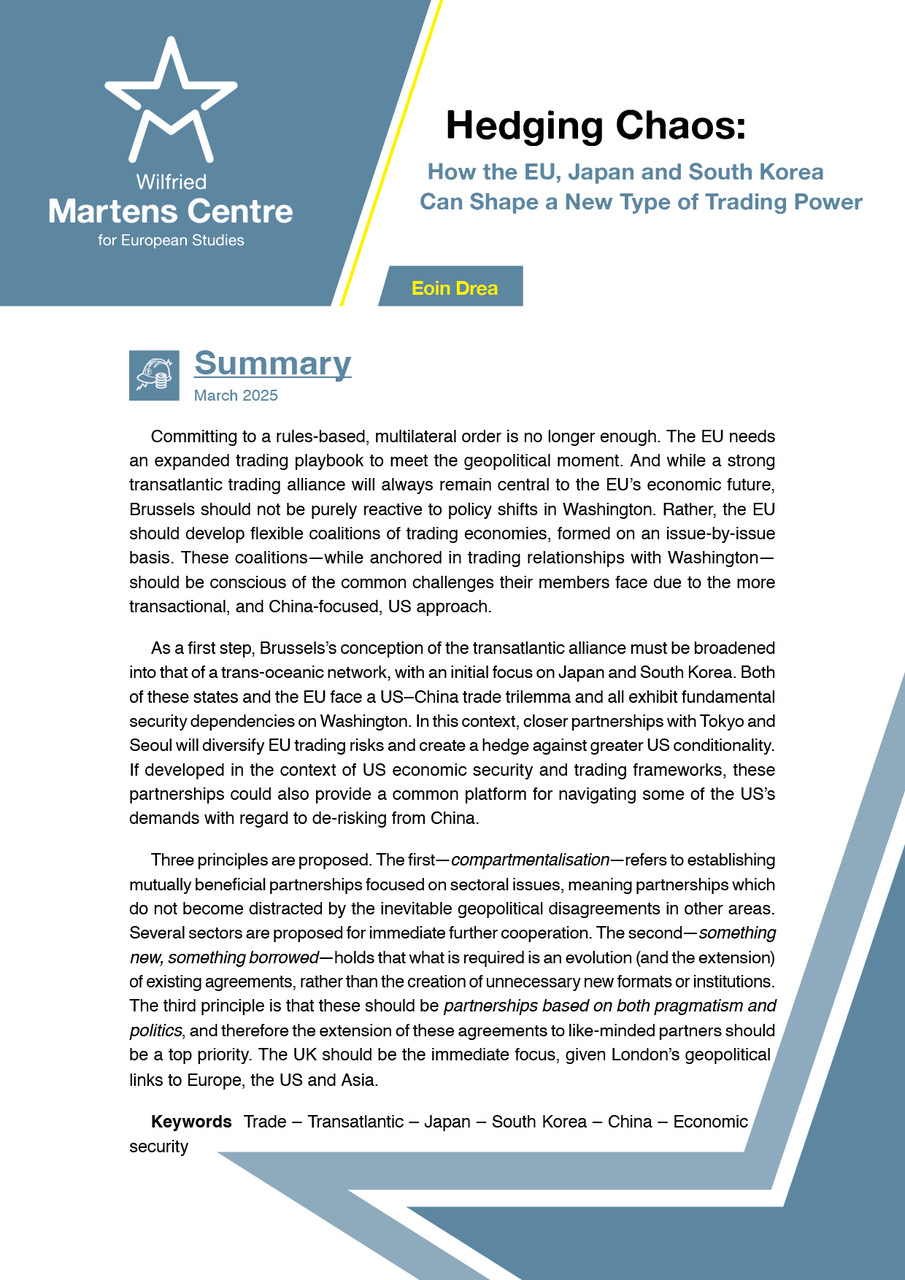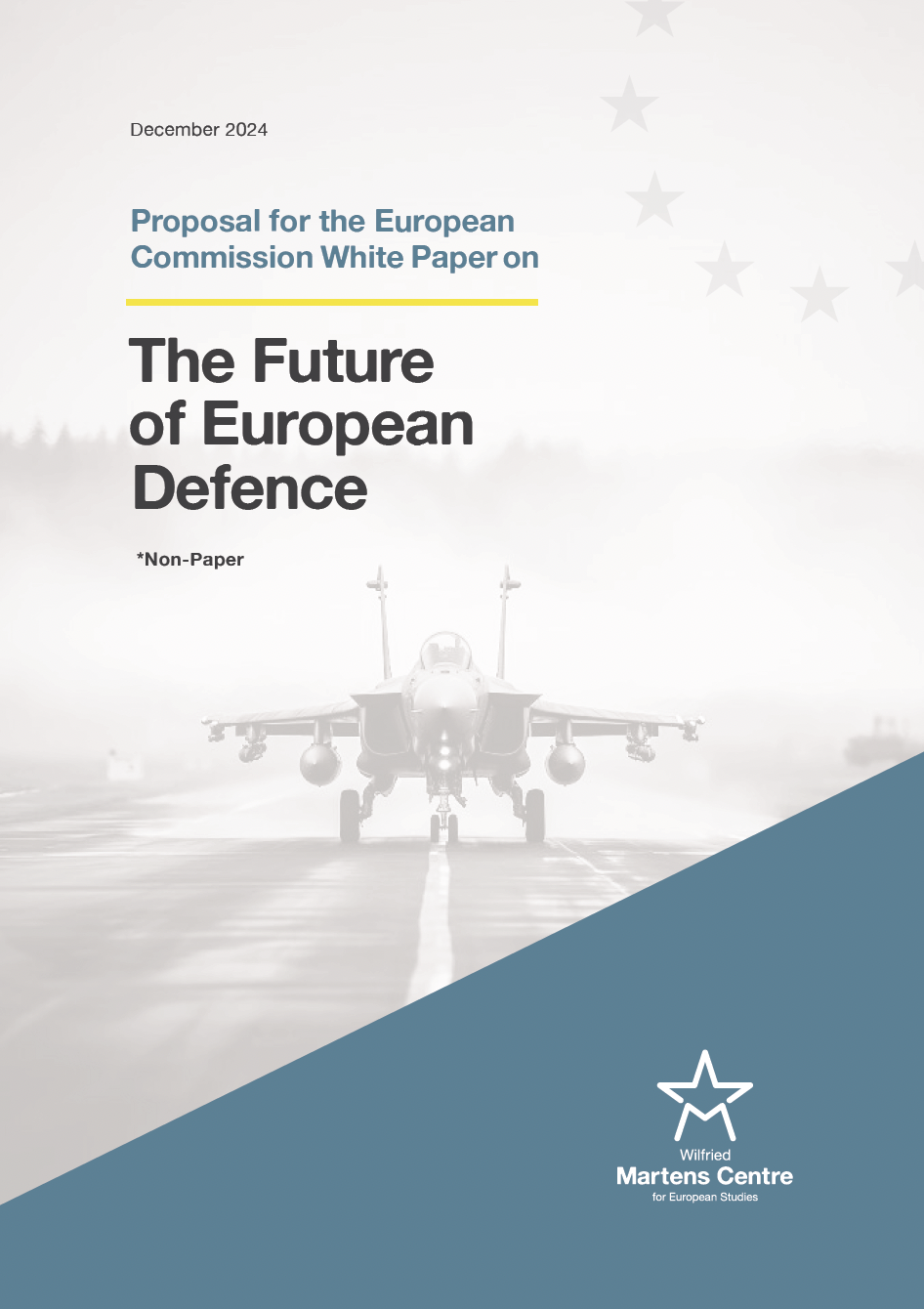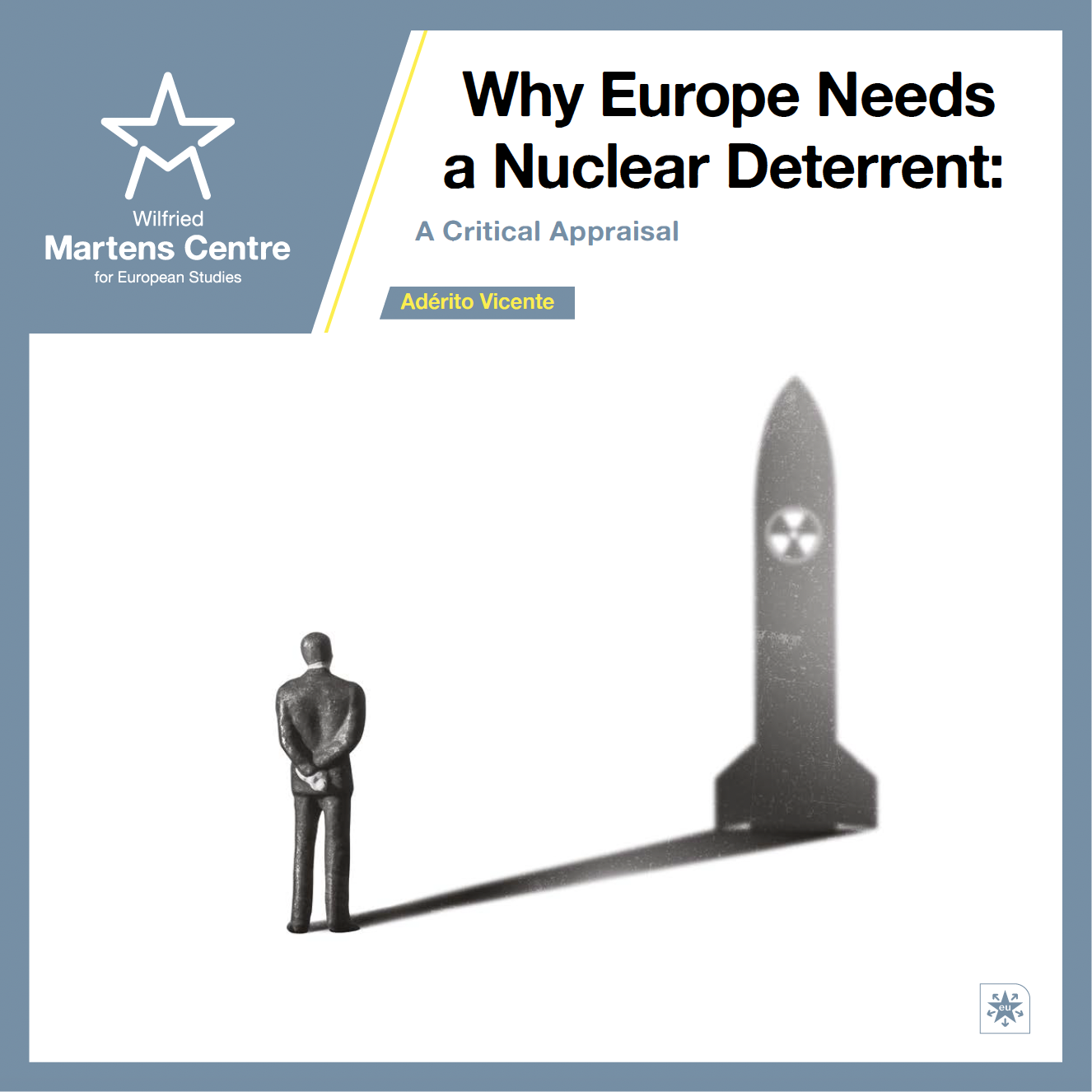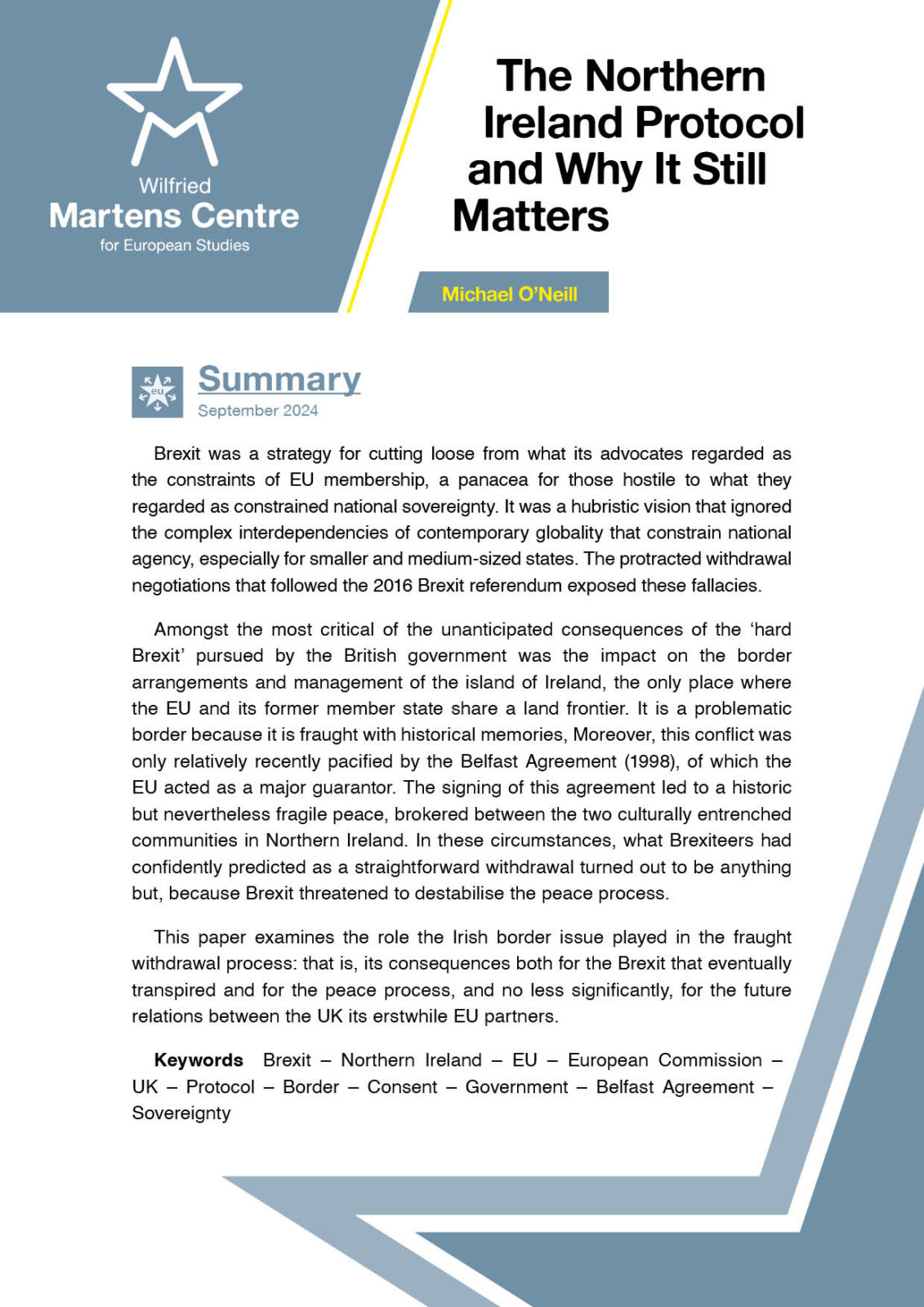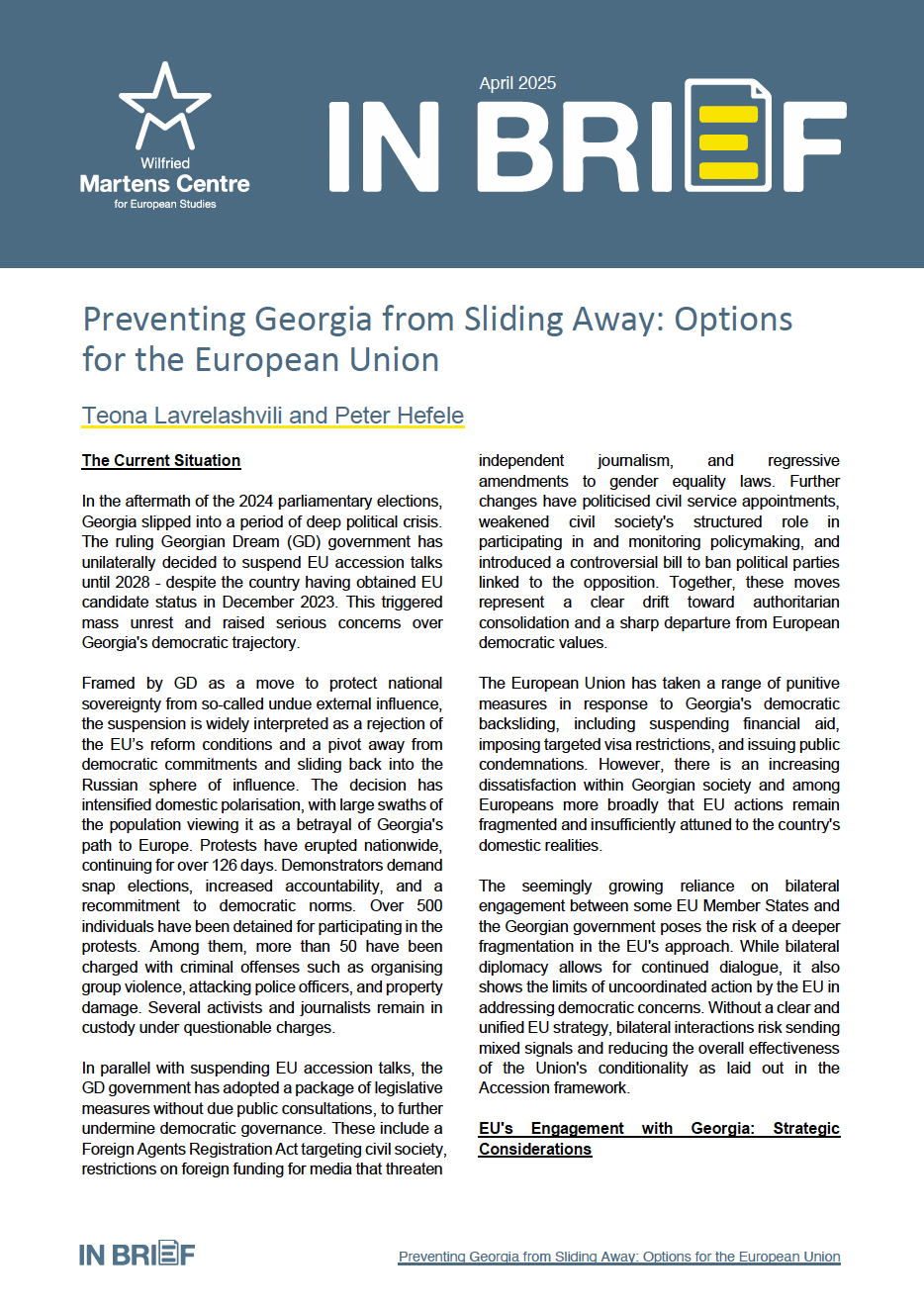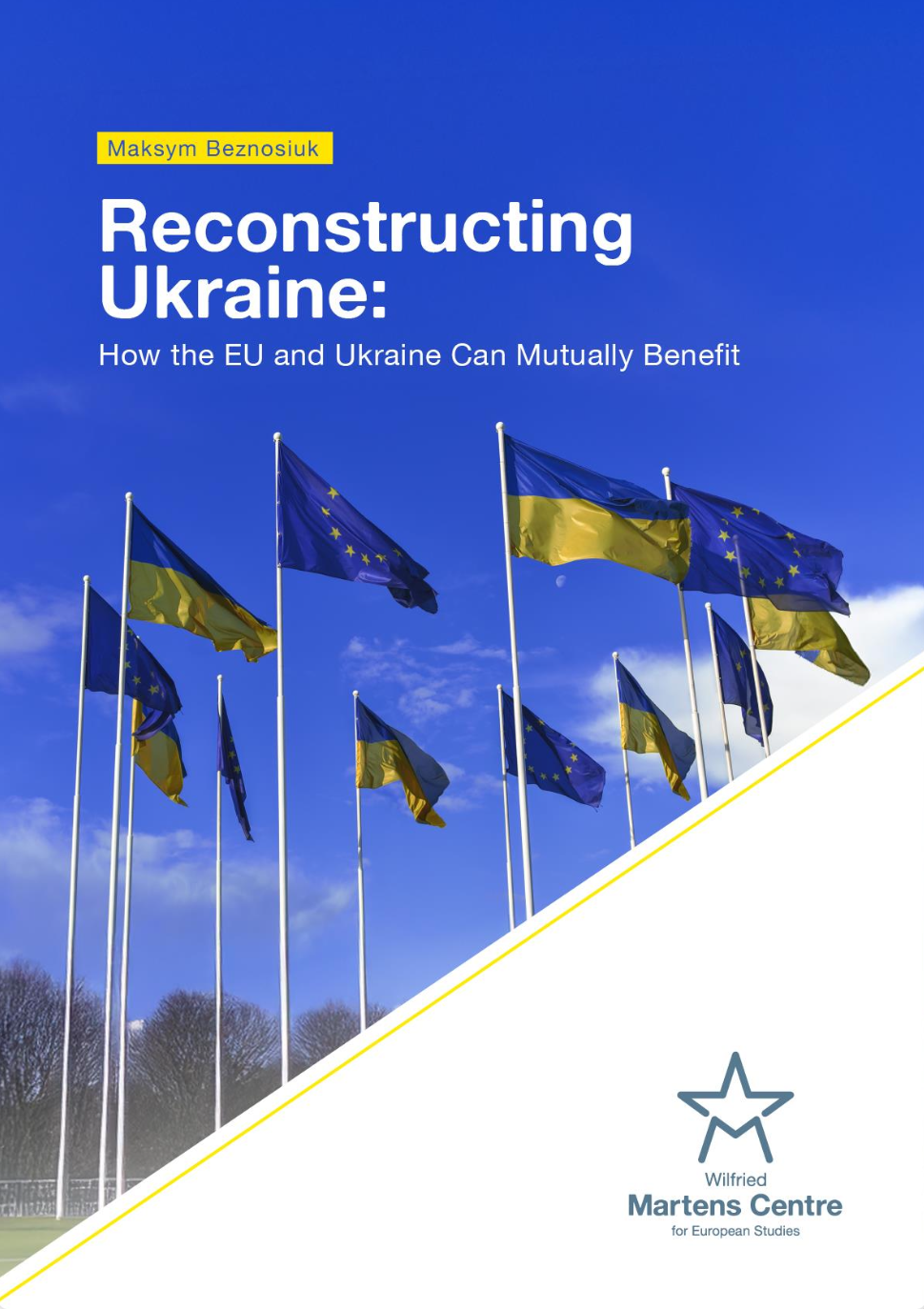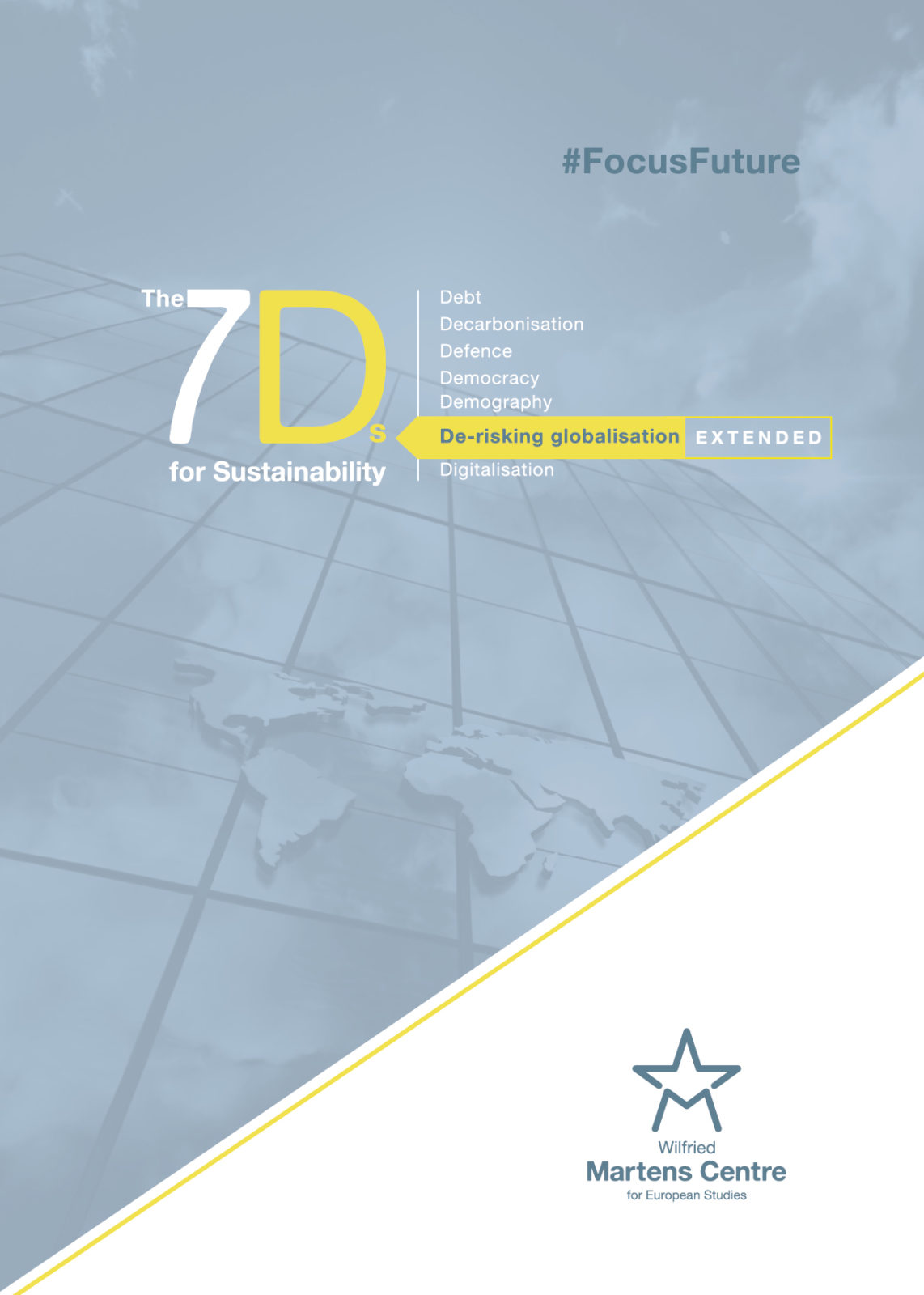Hedging Chaos: How the EU, Japan and South Korea Can Shape a New Type of Trading Power
04 March 2025
Committing to a rules-based, multilateral order is no longer enough. The EU needs an expanded trading playbook to meet the geopolitical moment. And while a strong transatlantic trading alliance will always remain central to the EU’s economic future, Brussels should not be purely reactive to policy shifts in Washington. Rather, the EU should develop flexible coalitions of trading economies, formed on an issue-by-issue basis. These coalitions—while anchored in trading relationships with Washington— should be conscious of the common challenges their members face due to the more transactional, and China-focused, US approach.
As a first step, Brussels’s conception of the transatlantic alliance must be broadened into that of a trans-oceanic network, with an initial focus on Japan and South Korea. Both of these states and the EU face a US–China trade trilemma and all exhibit fundamental security dependencies on Washington. In this context, closer partnerships with Tokyo and Seoul will diversify EU trading risks and create a hedge against greater US conditionality. If developed in the context of US economic security and trading frameworks, these partnerships could also provide a common platform for navigating some of the US’s demands with regard to de-risking from China.
Three principles are proposed. The first—compartmentalisation—refers to establishing mutually beneficial partnerships focused on sectoral issues, meaning partnerships which do not become distracted by the inevitable geopolitical disagreements in other areas. Several sectors are proposed for immediate further cooperation. The second—something new, something borrowed—holds that what is required is an evolution (and the extension) of existing agreements, rather than the creation of unnecessary new formats or institutions. The third principle is that these should be partnerships based on both pragmatism and politics, and therefore the extension of these agreements to like-minded partners should be a top priority. The UK should be the immediate focus, given London’s geopolitical links to Europe, the US and Asia.
ENJOYING THIS CONTENT?


